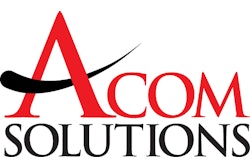IT is principal factor behind corporate productivity increases, but executives concerned over inadequate return on IT investments
New York — September 1, 2004 — The majority of business and information technology (IT) executives in the United States anticipate increases in IT expenditures over the next three years, according to results of a survey released today by the consulting firm Accenture.
The study, which queried more than 300 general business managers and IT executives of large U.S.-based companies, found that more than half (55 percent) of all respondents expect their organizations to increase their IT expenditures over the next three years, with only 10 percent expecting their organizations to decrease IT spending.
In addition, of the 84 percent of respondents who indicated that productivity at their companies had increased over the past several years, most identified IT-related factors as key to that increase. Specifically, more than four-fifths (83 percent) cited "better use of technology" and nearly two-thirds (65 percent) selected "the right amount of investment in technology."
However, the survey identified several areas where the business managers were disappointed in the effectiveness and impact of IT. Most notably, nearly half (47 percent) of business managers and more than half (51 percent) of IT executives said their companies did not know how to make their technology organizations accountable for delivering real business value. In addition, more than half (52 percent) of the business managers said that IT is under-delivering relative to what their companies spend.
"Aligning IT strategies to business objectives is one of the most fundamental factors for deriving value from technology investments," said Gary Curtis, the lead partner of Accenture's Strategic Information Technology Effectiveness (SITE) practice. "Unfortunately, achieving such alignment is one of the areas that many companies find most challenging."
The survey also found that business managers and IT executives at companies where alignment between IT expenditures and overall company goals was viewed as strong were much more likely than their counterparts at companies where alignment was viewed as weak to:
* believe that overall and IT-based productivity have increased in the past few years (89 percent at "strong" companies versus 68 percent at "weak" ones);
* engage their business units in creating IT budgets (71 percent at "strong" companies versus 28 percent at "weak" ones); and
* believe that their companies are making the proper level of IT investment (58 percent at "strong" companies versus 26 percent at "weak" ones).
"Information technology can have an enormous impact on how well and how quickly a company can achieve its business goals, but it can only do so if IT investments are in tune with corporate priorities," Curtis said. "The companies that are most successful in achieving their goals engage top management in the key IT investment decisions and create a culture in which business and IT executives collaborate extensively."









